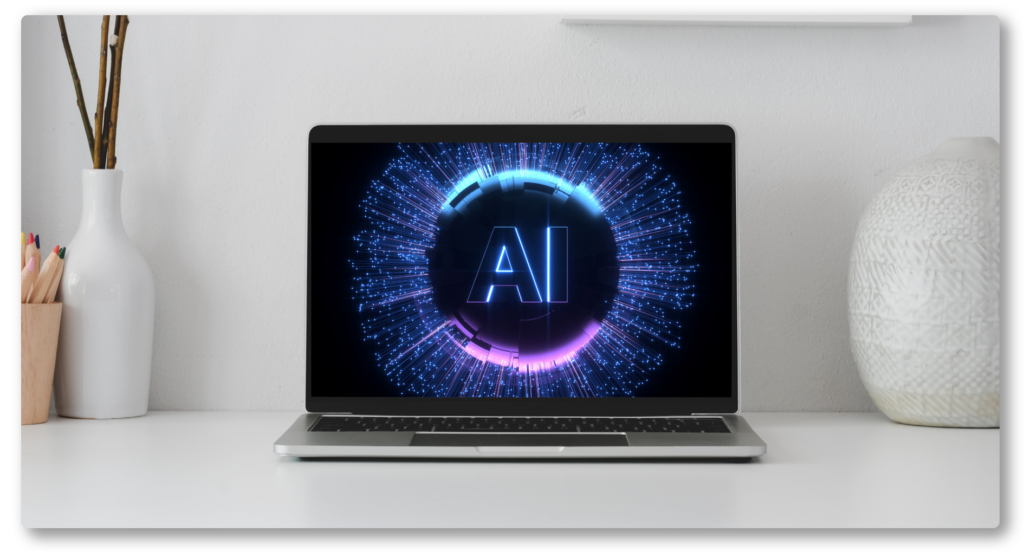The Synergy of A.I. and Professional Translators in Legal Contexts: Finding the Right Balance


In the labyrinth of legal intricacies, the pursuit of precision in translation is a pivotal challenge. As the world embraces the rise of A.I. in translation and beyond, the navigation of its integration with human expertise echoes across industries.
The union of machine precision and human understanding, often touted as a collision between innovation and tradition, is actually an opportunity. And at Alexa Translations, we choose to see it as a harmonious symphony that strikes the cord of accuracy, nuance, and legal finesse.
In the quest for precision and efficiency, understanding the opportunity at the interplay between A.I. and professional translators becomes paramount. That’s why we are taking a look at how legal translation can benefit from the integration and collaboration of both of them.
The recent and increasing integration of A.I. into the legal translation industry has been revolutionary, with the delivery of unparalleled precision and expedited document processing. The allure of A.I. lies in its capacity to swiftly translate vast volumes of legal content, accurately and appropriately to the legal context. However, this technological marvel has not been without its intricacies and challenges.

A.I.-enabled translation solutions, powered by neural networks and machine learning algorithms, boast the impressive capability to render accurate translations swiftly. Leveraging vast databases, they excel in delivering precise translations of legal texts, ensuring consistency across documents and languages. The A.I.'s ability to identify and process specific legal terminology contributes to its precision, enabling it to handle these translations with accuracy and precision.
One of the paramount advantages of A.I.-enabled translation in the legal industry is its remarkable speed and efficiency. Unlike professional translators, A.I.-enabled solutions can process vast amounts of data within seconds, expediting the process significantly. This swift turnaround time is particularly advantageous in scenarios that demand quick translations of legal documents, contracts, or agreements, and time is of the essence.
Despite its prowess, A.I.-enabled legal translation can encounter challenges. The contextual complexity of legal language, intertwined with cultural nuances and ambiguous terms, can present a significant hurdle for A.I. systems not properly trained in the industry. Legal documents often contain intricate phrases, subtle nuances, and context-specific meanings that can elude machine translation, leading to inaccuracies and misinterpretations.
That is where the Alexa Translations A.I. solution is different. Designed using collaborative intelligence, our A.I. - particularly in combination with our team of subject matter expert legal-linguists, leverages client-specific lexicons, previously translated documents, and a multi-stage review process to ensure the most accurate outcome. Additionally, the A.I. is also trained with a broad range of Canadian judicial decisions, regulatory documents, and other prominent legal and financial sources, that enable our A.I. to keep pace with developments in legal contexts.
The expertise of our professional legal translators stands as an indispensable cornerstone because of the nuanced understanding and contextual finesse it brings. Our professional translators possess the integral ability to masterfully navigate the complexities of legal language, intertwining contextual subtleties, and nuanced legal concepts.

Professional translators, who double as legal subject matter experts, bring a depth of contextual understanding that transcends mere linguistic proficiency. Beyond words and phrases, they are able to comprehend the underlying intent, implications, and nuances embedded within legal texts. This contextual comprehension extends to grasping the cultural connotations, historical references, and the intricacies of legal frameworks.
Legal translation transcends language; it delves into the core of cultural contexts and legal systems. Professional translators, equipped with a background in law or specialized legal training, possess the acumen to interpret legal terminologies within legal contexts. This comprehension enables them to discern subtle distinctions, idiomatic expressions, and legal precedents crucial for accurate translations.
Additionally, the complexity of legal documents demands more than linguistic accuracy; it necessitates the ability to navigate intricate legal scenarios. Professional translators excel in deciphering ambiguous phrases, resolving conflicting interpretations, and preserving the intended legal meaning—tasks that can, at times, challenge the capabilities of AI translation due to their reliance on context, intuition, and experience.
We believe the juxtaposition of A.I.-enabled translation and professional expert translators is not a battle between adversaries but a strategic alliance—a collaboration poised to harness the strengths of both worlds. The quest for optimal legal translations lies in embracing the synergy between A.I.'s computational prowess and the nuanced expertise of expert legal translators.
The fusion of A.I. and professional translators forms the cornerstone of a hybrid approach that optimizes efficiency and accuracy. A.I.'s proficiency in handling large volumes of data at lightning speed complements the meticulous attention to detail and contextual comprehension offered by our legal-linguists. This collaborative model capitalizes on the strengths of each, mitigating the limitations inherent in singular approaches.
While A.I. supercharges the translation workflow, professional translator oversight serves as a pivotal quality assurance mechanism. Professional translators bring their expertise to fine-tune, validate, and rectify any inaccuracies or nuances that A.I. might overlook. This human touch elevates the precision and ensures the preservation of legal nuance, cultural sensitivities, and contextual intricacies, fortifying the translated content.
The amalgamation of A.I. and professional translators transcends the boundaries of mere efficiency—it embodies scalability without compromising on quality. A.I.-driven systems excel in swiftly processing immense volumes of routine translations, enabling professional translators to focus on tasks that demand cognitive prowess, contextual understanding, and nuanced interpretation within legal texts.
The symbiotic relationship between A.I. and professional translators fosters a collaborative ecosystem where technology empowers human expertise and vice versa. This collaboration isn't merely a convergence; it is an opportunity to bridge the gap between innovation and tradition, forging a path that amalgamates technological advancements with the invaluable wisdom of human cognition.
As more and more organizations are called upon to navigate the evolving landscape of translation, recognizing the complementary roles of A.I. and professional translators becomes pivotal. And striking a balance that optimizes the strengths of both, while mitigating their respective limitations, propels us all towards a future where precision, efficiency, and the integrity of legal translation coalesce seamlessly.
Find out more about our translation expertise, and how best our legal-linguists and A.I. solution can serve you.